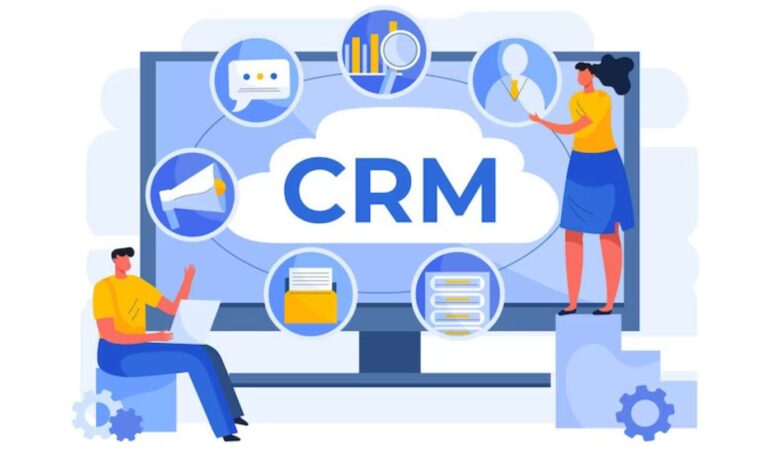How to Implement CRM in a Small Business

Customer Relationship Management (CRM) systems are essential tools for businesses looking to streamline processes, improve customer relations, and drive growth. However, implementing a CRM system can be a complex task if not approached correctly. That’s where Contrivers, your trusted partner in A Comprehensive CRM Implementation Guide, comes in. This guide will walk you through the essential steps of CRM implementation to ensure a smooth and successful process.
Why CRM Implementation Matters
Define Your CRM Strategy
Before diving into the technical setup, it’s critical to define your CRM strategy. Determine your business goals, such as improving sales tracking, enhancing customer service, or automating marketing. A clear strategy ensures that your CRM system aligns with your business needs.
Contrivers Tip: Our team can help you assess your company’s needs and customize a CRM solution tailored to your specific business objectives.
Choose the Right CRM System
Selecting the right CRM software is crucial. A Comprehensive CRM Implementation Guide, each with its own set of features. Choose one that suits your business size, industry, and specific requirements. Whether you need sales automation, marketing integration, or customer service tools, finding the right fit is key.
Contrivers Tip: We assist in evaluating different CRM platforms and selecting the one that best suits your organization’s needs.
Plan the Implementation
After choosing your CRM platform, develop an implementation plan. Set clear milestones and timelines for the project. This stage should include data migration, system customization, and training for your team. A detailed plan minimizes disruptions and ensures a smooth transition.
Contrivers Tip: Our implementation specialists create a comprehensive roadmap, ensuring a streamlined process with minimal downtime.
Data Migration and Integration
Migrating data from old systems into the new CRM is often the most challenging part of implementation. Careful attention must be given to data accuracy, ensuring that no valuable customer information is lost. Additionally, the new CRM should integrate seamlessly with other systems your business uses, such as email marketing platforms or accounting software.
Contrivers Tip: Our experts manage the entire data migration process and ensure smooth integration with existing tools and platforms.
Customize the CRM to Fit Your Needs
Every business has unique workflows, and your CRM should reflect that. Customize dashboards, automate tasks, and create workflows that align with your company’s operations. This ensures that your CRM is an asset that enhances efficiency rather than a one-size-fits-all system.
Contrivers Tip: We specialize in CRM customization, ensuring your system is tailored to your specific business model.
Provide Training and Support
Your CRM is only as good as the people using it. Comprehensive training is essential for ensuring your team is comfortable using the new system. This includes training on basic functionalities, workflows, and any custom features you’ve implemented. Continuous support is also necessary to address any issues that arise.
Contrivers Tip: We offer ongoing training and 24/7 support, helping your team get the most out of your CRM system.
Monitor, Optimize, and Scale
Once your CRM is live, it’s important to monitor its performance and make adjustments as necessary. Over time, you may need to scale your system to accommodate new users or integrate additional features as your business grows.
Contrivers Tip: Our services don’t end after implementation. We provide continuous monitoring and optimization, helping your CRM evolve as your business scales.
Conclusion
A successful CRM implementation can transform your business by improving efficiency, boosting customer satisfaction, and driving revenue growth. However, navigating the complexities of CRM setup and customization requires expertise. That’s where Contrivers comes in. We guide you through every step of CRM implementation, from strategy development to system integration and training.




